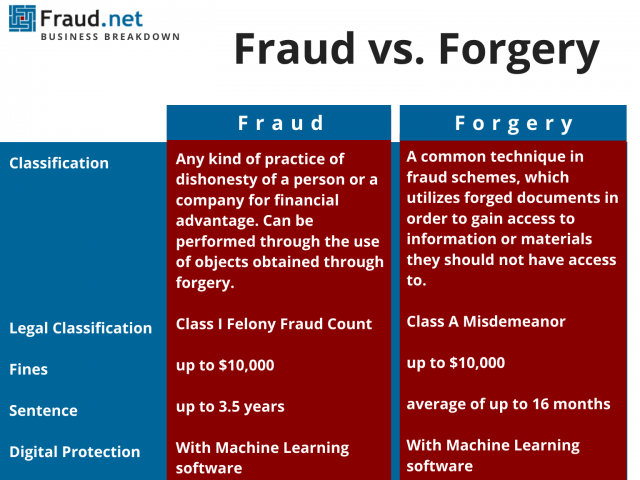In today’s world, the rapid development of technology can make it difficult to fight fraud and forgery, especially for legal authorities. Knowing what charges come with each, and primarily how to prevent them, is vital to saving your business significant costs per year.
Essentially, Fraud denotes any kind of practice of dishonesty of a person or a company for financial advantage. It is generally considered a well-thought-out crime by the law. On the other hand, forgery is essentially concerned with a produced or altered object. Fraud is the crime of deceiving another, which may be performed through the use of objects obtained through forgery. Forgery is a common technique in fraud schemes, where the fraudster uses forged documents in order to gain access to information or materials they should not truly have access to. The legalities and sentencing for each is extremely nuanced, but can provide insights for your business on which steps to take to both prevent and combat existing fraud.
Acts of fraud can be legally classified up to a Class I Felony , with fines up to $10,000 and a prison sentence of up to 3.5 years, and is an overarching term for many different federal charges. The average imprisonment time for counterfeiting (or forgery) is roughly 16 months.
Contact Fraud.net to schedule a demo of our end-to-end anti-fraud prevention system or a free fraud analysis, and start mitigating both forgery and fraud risks today.





